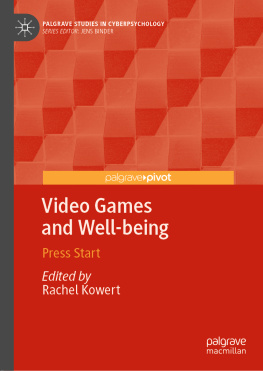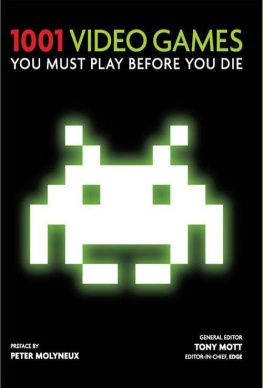Jordan Erica Webber () is a freelance writer and speaker who specialises in video games. Most of her work can be found in the Guardian . She has a first-class degree in Philosophy with Psychology from the University of Warwick.
Daniel Griliopoulos () is a writer specialising in video games. His work has been published in media including the New Statesman , the Mail on Sunday and the Guardian . He has a degree in Politics, Philosophy and Economics from the University of Oxford and a lifelong love of classical philosophy. He is currently Lead Content Editor at tech firm Improbable.
Ten Things Video Games
Can Teach Us
JORDAN ERICA WEBBER AND
DANIEL GRILIOPOULOS
ROBINSON
First published in Great Britain in 2017 by Robinson
Copyright Jordan Erica Webber and Daniel Griliopoulos, 2017
The moral right of the author has been asserted.
All rights reserved.
No part of this publication may be reproduced, stored in a retrieval system, or transmitted, in any form, or by any means, without the prior permission in writing of the publisher, nor be otherwise circulated in any form of binding or cover other than that in which it is published and without a similar condition including this condition being imposed on the subsequent purchaser.
A CIP catalogue record for this book is available from the British Library
ISBN: 978-1-47213-792-0
Robinson
An imprint of
Little, Brown Book Group
Carmelite House
50 Victoria Embankment
London EC4Y 0DZ
An Hachette UK Company
www.hachette.co.uk
www.littlebrown.co.uk
Acknowledgements
Many people have had an impact on this book, many have helped and many have actively contributed. We couldnt have done it without them.
Firstly, the philosophers. Thanks to Julian Baggini, Chris Bateman, Kimberley Brownlee, David Chalmers, Luciano Floridi, Katherine Hawley, Angie Hobbs, Guy Longworth, Lucy OBrien, Constance Steinkuehler and Robyn Waller.
Secondly, the games industry. Thanks to Johan Andersson, Chris Avellone, Pippin Barr, Zach Barth, Mary DeMarle, Connor Fallon, Sylvia Feketekuty, Richard Garriott, Alexander Gianturco, Harry Giles, Katie Goode, Holly Gramazio, Thomas Grip, Cliff Harris, Joey Jones, Tom Jubert, Itay Keren, Lorne Lanning, Richard Lemarchand, Ken Levine, Mark Llabres Hill, Keza MacDonald, Sean Murray, Craig Pearson, Lucas Pope, Will Porter, William Pugh, Brenda Romero, Jordan Thomas and Patrick Weekes.
Finally, Dan would like to thank his life partner Victoria Dain, and his writing partner Alec Meer, for providing all different forms of support when he was working on this. Jordan also has two people without whose support she could never have seen this through: her soulmate Kat Brewster, and her friend and mentor Keith Stuart.
Contents
One day, if it hasnt happened already, you may discover people think youre smarter than you are. Ive found its because they dont know you. When they meet you, reality will come crashing down or, maybe more appropriately, theyll have pulled the curtain aside and will see Oz for what Oz is, and its rather disappointing. (Although technically, Oz was trying to seem more than he is.) Jordan Erica Webber is the exception. She will never think you are smarter than you are. This is her philosophy.
Over my many years of growing older, Ive had people put philosophical (and historical and cultural and...) labels on games Ive worked on, asking if Id used a certain framework, point of view. And then when Ive given my actual answer (which is usually a stupid one), they respond with, Oh, youre an X.
This surprises me because they rarely say, Oh, youre a game designer. But I am. Really.
My stupid but truthful answer is that I took what was given, thought about what was expected, and then (if necessary) used the game genre and franchise to help inform that decision. Sometimes it worked. Sometimes it didnt. But usually any glimmer of an expressed philosophy came from the fictional antagonists, protagonists and even a player companions view of the world, not from any education or real-world intent I had.
So yes, Im stupid. But after those conversations I also felt that the need to put a concept in a box may not always be appropriate. Sure, the box can help. But if you rely on the box too much... well, we probably wont see eye-to-eye. For me, mostly because of projects in the past, the box should be looked into, closed, then used as a foundation for the first step on a lo-o-o-o-ng staircase.
As an example, the box for one of the titles quoted in this volume ( Planescape: Torment ) was simple, pragmatic and frightening. I was told (1) you will use BioWares Infinity Engine (an engine is a games underlying code and tools), (2) you will use the Planescape licence because the company paid a lot of money for it, and (3) you will have a small team at the outset, it will be a team of one, and that one is you. Congratulations. Get designing.
But even those elements dont confine you theyre just the first step. From there, you take the next step. Then the next. And so on.
Dont get me wrong the desire to quantify is essential to game design, and labels and tags assist with that. Design is all about quantifying the abstraction of fun. While fun for different game genres can have different parameters, the underlying philosophy is knowing ones role as a developer to both the game and the player, and upholding your responsibility to the game mechanics you have provided.
On a high level, a developers role is as an entertainer. We are commissioned to entertain. We have a responsibility not only to the game, but also to the players experience with the game.
Narrowing the developer focus a bit, knowing ones role as a developer of role -playing games is following through on the promise of allowing the player to take on a role. Sometimes this means providing game mechanics, choices and dilemmas that are either clearly good or bad, or ones where the desired outcome is unclear but can be more interesting because the dilemma isnt clearly a good or bad choice. The player is forced to think not only, Should I be good or bad? but also, What kind of person is my player-character, and what would they choose in this abstract situation?
From there, the responsibility comes in delivering on the promise that the players role-playing choices in the game will not limit their enjoyment of the game. That is because you have provided the systems and its not fair to punish the player for engaging with those systems. Its also because a game that punishes your choices through judgement is making a statement, and is arguably no longer a game. And its been said by designers wiser than me (and in fewer words) that themes and choices should ask questions of the player, not dictate answers.
Often, youll see more of the underpinnings of a design philosophy and judgement in the game systems players are allowed to engage in and how they are allowed to define their character. It can be subtle or overt. A developer can make implicit judgements by not including a Charisma statistic. Or by not allowing you to kill a quest giver. Or including a Karma statistic. Or by refusing to allow you to play an evil character or by not having a morality bar at all. A developer can even make a judgement in the difficulty settings for a game in all these instances, they are informing you of their design philosophy (and usually making a judgement as well).



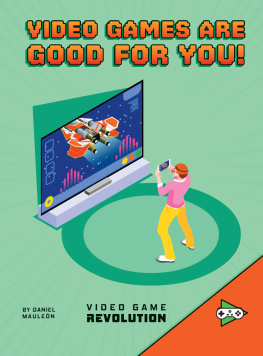
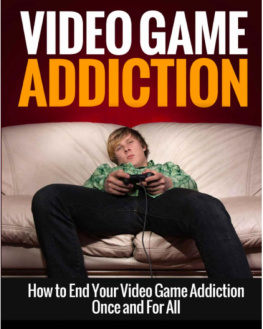


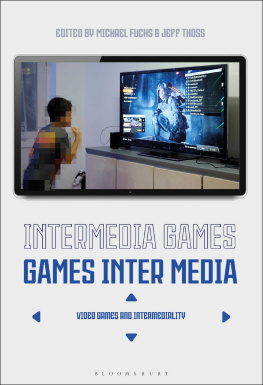
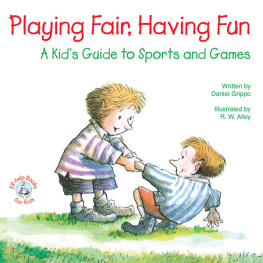
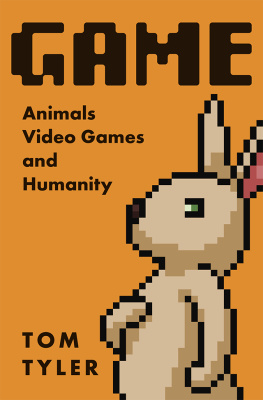
![Mark J. P. Wolf (editor) - Encyclopedia of Video Games: The Culture, Technology, and Art of Gaming [3 volumes]](/uploads/posts/book/279290/thumbs/mark-j-p-wolf-editor-encyclopedia-of-video.jpg)
